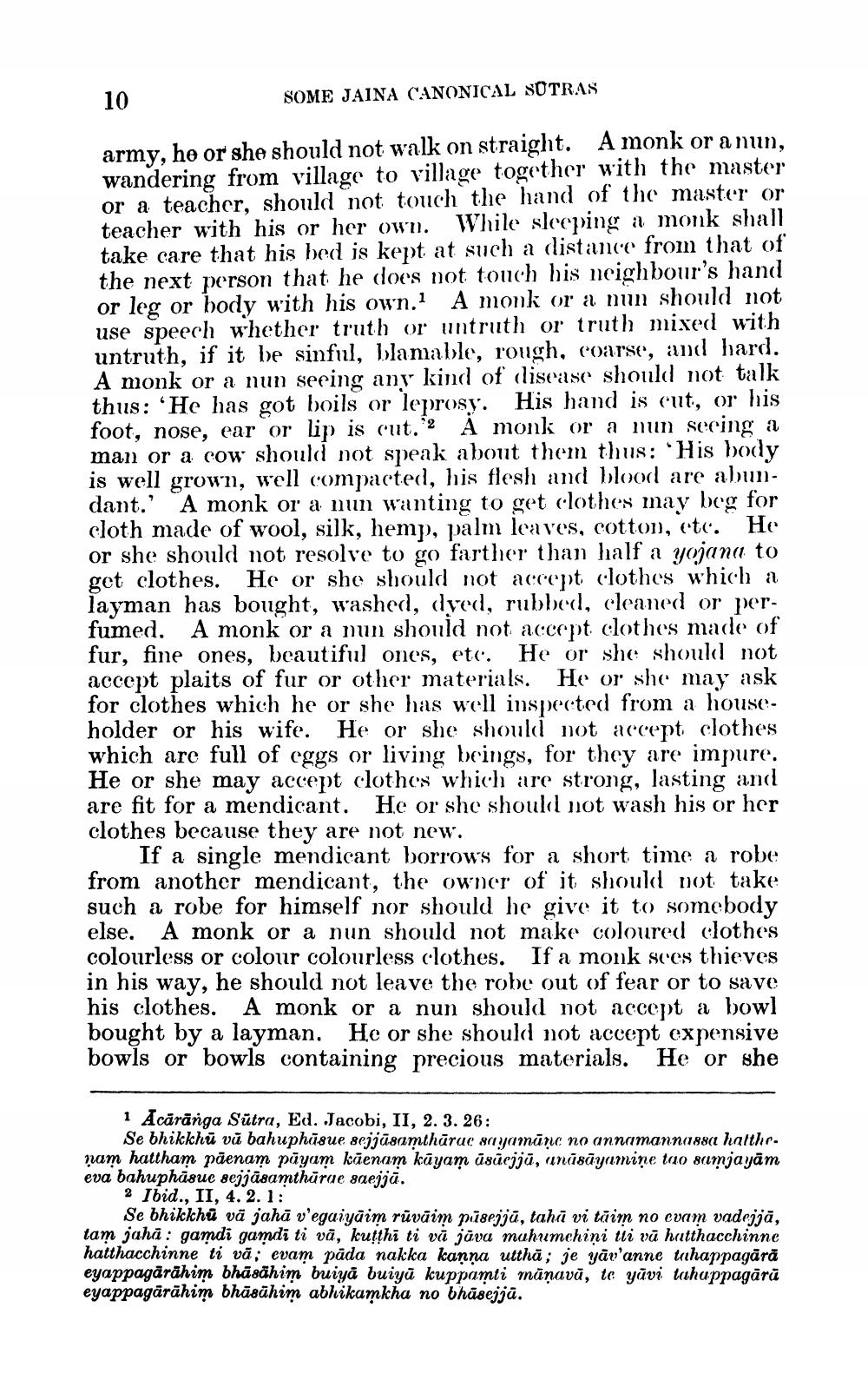________________
10
SOME JAINA CANONICAL SOTRAS
army, he or she should not walk on straight. A monk or a nun, wandering from village to village together with the master or a teacher, should not touch the hand of the master or teacher with his or her own. While sleeping it monk shall take care that his bed is kept at such a distance from that of the next person that he does not touch his neighbour's hand or leg or body with his own. A monk or a nun should not use speech whether truth or untruth or truth mixed with untruth, if it be sinful, blamable, rough, coarse, and hard. A monk or a nun seeing any kind of disease should not talk thus: “He has got boils or leprosy. His hand is cut, or his foot, nose, ear or lip is cut."2 A monk or a mun seeing a man or a cow should not speak about them thus: His body is well grown, well compacted, his flesh and blood are abundant.' A monk or a nun wanting to get clothes may beg for cloth made of wool, silk, hemp, palm leaves, cotton, etc. He or she should not resolve to go farther than half a yojana to get clothes. He or she should not accept clothes which a lavman has bought. washed. dved, rubbed, cleaned or perfumed. A monk or a nun should not accept clothes made of fur, fine ones, beautiful ones, etc. He or she should not accept plaits of fur or other materials. He or she may ask for clothes which he or she has well inspected from a householder or his wife. He or she should not accept clothes which are full of eggs or living beings, for they are impure. He or she may accept clothes which are strong, lasting and are fit for a mendicant. He or she should not wash his or her clothes because they are not new.
If a single mendicant borrows for a short time a robe from another mendicant, the owner of it should not take such a robe for himself nor should he give it to somebody else. A monk or a nun should not make coloured clothes colourless or colour colourless clothes. If a monk sees thieves in his way, he should not leave the robe out of fear or to save his clothes. A monk or a nun should not accept a bowl bought by a layman. He or she should not accept expensive bowls or bowls containing precious materials. He or she
1 Acārānga Sūtra, Ed. Jacobi, II, 2. 3. 26:
Se bhikkhu và bahuphāsue sejjāsamthūrue satyamūnc no annamanna 88(1 holthe. nam hattham pāenam pāyam kāenam kāyam ūsūcjjū, anasāyamine tao samjayām eva bahuphasue sejjāsamthūrae saejjā.
2 Ibid., II, 4. 2. 1:
Se bhikkhu vā jahā v'egaiyāim rūvāim pūsejjā, tahā vi tăim no cvam vadejjā, tam jahā: gamdi gamdi ti vä, kutthi ti vă jāvu mahumchini tli va hatthacchinne hatthacchinne ti vā; cvam pada nakka kanna utthā; je yāv'anne tahappagārā eyappagārähim bhāsähim buiyā buiyū kuppamti māņavā, te yūvi tahappagārā eyappagārāhim bhāsāhim abhikamkha no bhūsejjā.




